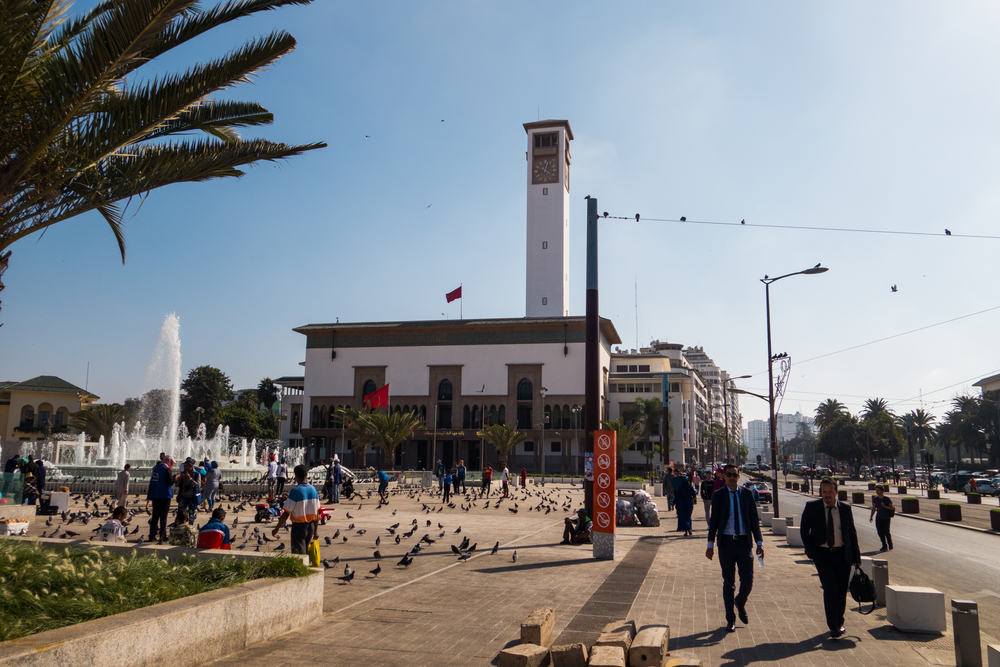Following the 2003 Casablanca attacks, Morocco began a profound transformation of the Kingdom’s counterterrorism strategy. In the immediate aftermath, legislators and policymakers confronted national security challenges, including enhancing security for potential vulnerable targets and addressing conditions conducive to terrorism and violent extremism
This article outlines some of Morocco’s noteworthy changes in the country’s counterterrorism approach since 2003 and measures results against the current African terrorism landscape.
On May 16, 2003, in Casablanca, Morocco, 12 members of al-Salafiya al-Jihadiya, a Salafi-jihadi terrorist organisation affiliated with Al-Qaeda in the Islamic Maghreb (AQIM), attacked the Farah Hotel, the Jewish Community Centre, a Jewish restaurant, a Jewish cemetery, and a Spanish social club.The selection of targets suggested that terrorists wanted to destroy the symbols of Morocco’s religious tolerance and modernity. The attacks left 45 people dead, including 12 suicide terrorists, and wounded 1002.
Although considered small and unsophisticated compared to other international terrorist operations, the five bombings left an indelible mark on the country’s psyche. The attacks marked the introduction of suicide terrorism in Morocco, represented the expansion of the Al-Qaeda terrorist threat to Morocco, and the end of the belief that the country was immune to the political trends of the Arab Middle East because of its Sunni heritage and open approach to Islam.
The Casablanca attacks set in motion a new wave of internationally-inspired domestic terrorism that would be eventually attested by the 2007 and 2015 Casablanca attacks; the 2011 attacks in Marrakech as well as the 2018 attacks in Imlil.
The 2003 Casablanca—and subsequent—attacks prompted the Moroccan government to enhance its counterterrorism policies to address changing terrorist tactics, accelerated operational tempo and increased lethality.
Law 03.03, passed two weeks after the 2003 attacks, became the first of a series of legislative reforms enhancing Morocco’s legal counterterrorism framework. This law expanded the definition of terrorism to include incitement. It introduced sentencings in line with the classification of terrorism as a major crime for active participation in terrorist related activities, including a minimum of a 10-year sentence.
In addition, Law 03.03 expanded the duration of police custody in cases of terrorism and enhanced both intelligence-gathering and counterterrorism investigations procedures.

The Moroccan government also recognised that the 2003 attacks required a comprehensive response that went beyond legal reforms.
Within the framework of its preventive approach, the country embarked on implementing what experts and analysts often refer to as a tri-dimensional counterterrorism strategy that is largely but not exclusively aimed at addressing different components of the terrorist threat through security, socio-economic development policies as well as supporting the religious field.
Results suggest that despite more than 1,000 Moroccan nationals joining the Islamic State (IS) and other terrorist groups in war zones, the country dismantled more than 200 terrorist cells and made more than 3,500 terrorism-related arrests over the past two decades, thereby possibly avoiding more than 300 planned terrorist actions.
While no country can defeat terrorism with just arrests,Morocco’s law enforcement actions have undoubtedly weakened terrorist organisationsin the country while reducing the appeal of violent extremism at home.
It reorganised its religious sector to counter terrorist narratives and recruitment, adopted a proactive national security strategy, updated its legislative and regulatory texts, and strengthened its state agencies in charge of security, human development, and international cooperation.
It has spearheaded the integration of women in Morocco’s prevention and countering of violent extremism conducive to terrorism (PCVE) efforts, which are now seen as a best practice in the Arab World and globally.
The Kingdom also became much more active in multilateral counter-terrorism activities, such as joining the Global Coalition to Defeat ISIS and co-chairing the Foreign Terrorist Fighter Working Group of the Global Counterterrorism Forum (GCTF)—whose Hague-Marrakech Memorandum was the basis of the landmark UN Security Council resolution 2178 (2014).
In 2015 it went on to take over the role of GCTF co-chair and to form a Group of Friends to counter terrorism at the United Nations.
Morocco’s active role in fighting terrorism suggests the country’s understanding of the threat; the interconnectedness of its counterterrorism methods; the application of combined soft and hard measures; the facilitation of information sharing practices; and the promotion of international cooperation as the sine qua non of counterterrorism.
With 41% of all IS-related attacks globally, Africa has replaced the Middle East as the epicentre of the global terrorist threat. Terrorist violence both feeds on and exacerbates the increased political instability in West Africa and the Sahel, complicating efforts to address underlying socio-economic and humanitarian conditions conducive to violent extremism.
Looking ahead, a comprehensive response, particularly aimed at addressing the need for enhanced counterterrorism investigative capacities is a good starting point for consideration. No country in Africa, let alone around the globe, will arrest itself out of the rising threat of terrorism. But without strong counterterrorism law enforcement-led interventions the fight is not likely to succeed.
Moroccan law enforcement successes in thwarting attacks while adopting responses that observe the rule of law and human rights provide a good example for the rest of the continent.
This excerpt is taken from ‘Why Morocco’s Counterterrorism Evolution Matters to Africe’ by Cesar A. Velasquez – Programme Office For Counter-Terrorism And Training in Africa, United National Office Of Counter-Terrorism (UNOCT), originally published in the Global Terrorism Index 2022 report.
Download the 2022 Global Terrorism Index report.